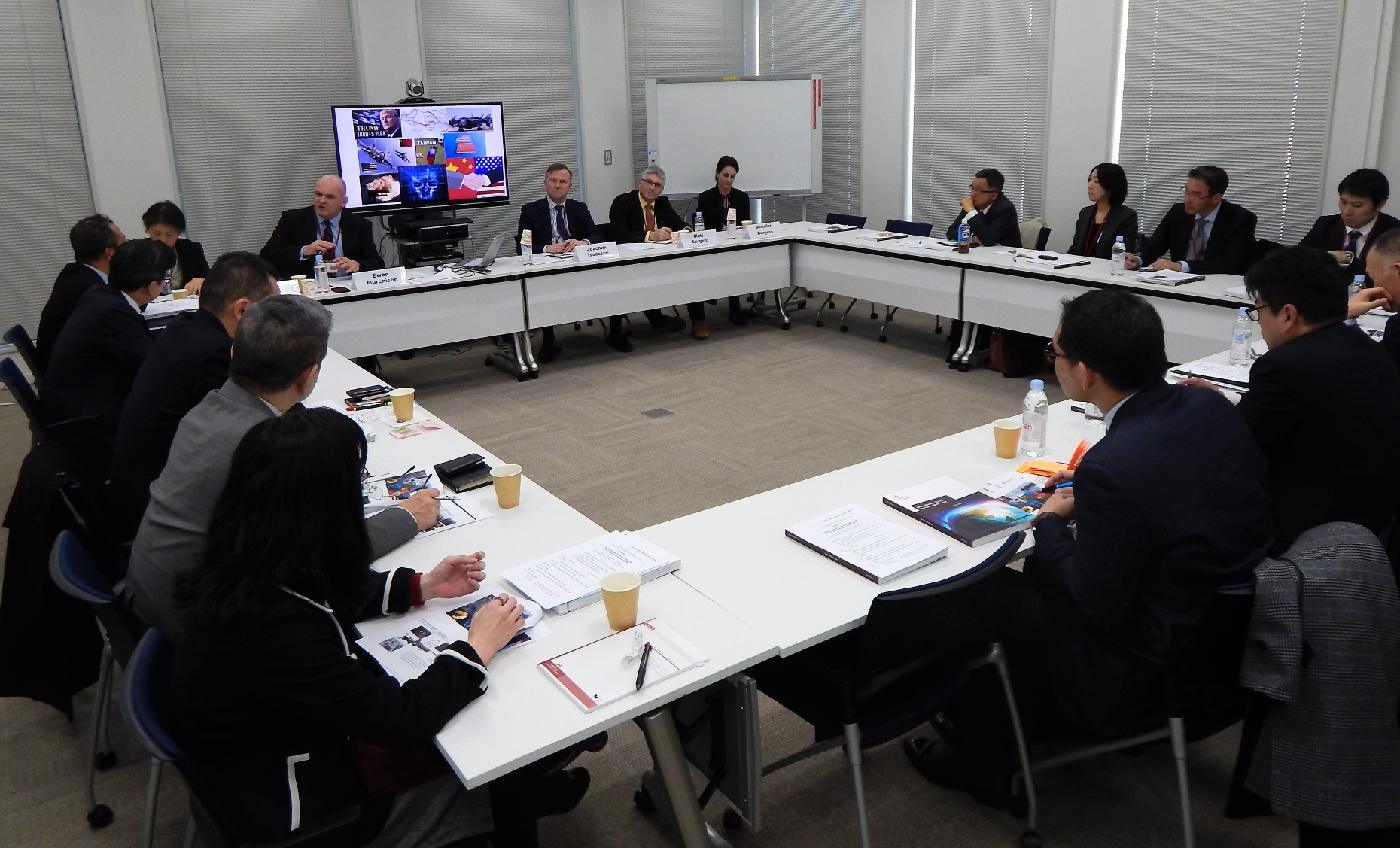Since 2001, the Futures Team at DCDC has developed innovative methods to predict a variety of future scenarios, publishing the results of their research in the Global Strategic Trends (GST) report series. These reports are produced to inform policymakers of potential strategic challenges that may arise 30 years in the future in order to promote flexibility in the face of uncertainty and encourage early intervention to contend with emerging issues.
"We study the future to disturb the present," explained the Head of Futures and Strategic Analysis Brigadier Ewen Murchison during an interview with SPF. By analyzing future trends, his team hopes to spur policymakers to take preemptive action rather than waiting for problems to grow, a strategy that ultimately lowers the cost of intervention and increases the likelihood of success. For example, in the case of climate change, "if you wait 10 or 15 years before you take action, some of the mitigation costs could be as much as 40% or 50% more because the problem will become even more complex and challenging."
Discussions throughout the SPF workshop generally focused on the purpose of DCDC's research, the main findings of GST 6, the most recent edition of DCDC's report series which was published in November 2018, and the broader security implications for the Indo-Pacific region.
One of the central conclusions from GST 6 is that while many of the major security trends are not necessarily new, increasing volatility now poses a novel threat to domestic and international security. "The pace of change and level of uncertainty could outpace good governance and unity," warned Brigadier Murchison. "Now that these changes are happening so quickly, enabled by technology, we need to take action now."
To refine the predictive power of the report, GST 6 also includes a new feature called the "Future Worlds" analysis. This section outlines an array of potential world orders defined by the prevailing balance of power and the amount of cooperation among international actors. The four scenarios include "multilateralism," where states and multilateral institutions are able to achieve a stable system of global governance; "multipolarity," where the creation of coalitions between major partners and inter-group competition define the prevailing balance of power; "network of actors," where state and non-state actors cooperate to achieve global governance; and "fragmentation," where international actors openly compete in pursuit of their own self interests.
The workshop also touched on the implications of the scenarios described in GST 6 for the global order writ large. Specific discussion topics included current challenges to the rules-based system and the possibility that confrontations between powerful states may hinder cooperation toward collective challenges such as climate change, organized crime, and other transnational issues. The participants also addressed the question of how countries will handle other emerging issues such as sustaining economic growth and counteracting inequality. The participants emphasized the need to protect collaborative approaches in the present to contend with these future challenges.
Regarding the Indo-Pacific region, the discussions covered several trends including the potential impact of Russia's declining power, the future of China-Russia military relations, and the possibility of India emerging as a future great power given its growing economy and population boom. Other topics included the role that China might play in the regional and global order and the impact that U.S.-China relations may have on regional security.
Related links:
For more on the Global Strategic Trends series, including an online edition of GST 6:
https://www.gov.uk/government/publications/global-strategic-trends
Development, Concepts and Doctrine Centre (DCDC) website:
https://www.gov.uk/government/groups/development-concepts-and-doctrine-centre
